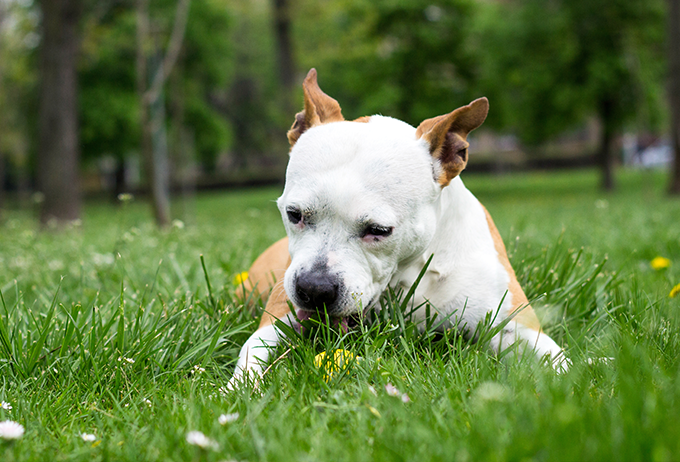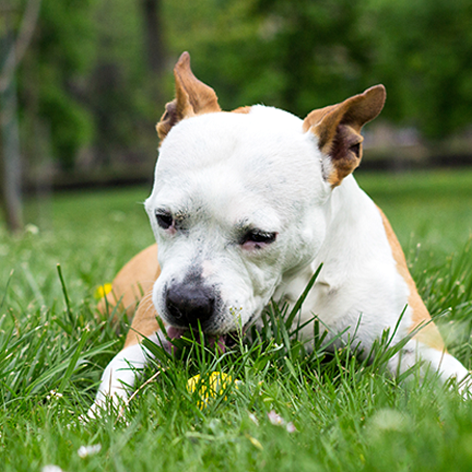Why my dog is eating grass

Dogs commonly engage in the behaviour of eating grass, and there are several potential reasons for this:
1. Dietary supplement: Dogs may eat grass to acquire nutrients like fiber that could be lacking in their regular diet. However, it's essential to remember that most commercial dog foods are designed to provide a balanced diet, so this behavior may not necessarily indicate a nutritional deficiency.
2. Upset stomach or digestive issues: Eating grass might help dogs soothe an upset stomach or alleviate digestive discomfort. Grass can induce vomiting, which can be beneficial if a dog has ingested something causing gastrointestinal distress. Some dogs may instinctively turn to grass to ease indigestion or encourage bowel movements.
3. Boredom or behavioral habit: Dogs may eat grass out of boredom or as a behavioral habit. When they lack mental or physical stimulation, they might resort to eating grass for entertainment or to pass the time. In some cases, it becomes a learned behavior as they find satisfaction in doing so.
4. Natural instinct: Dogs have evolved from omnivorous wolves that included plant matter in their diet. The behavior of eating grass might be an instinctual trait passed down through generations.
5. Palatability or taste: Some dogs simply enjoy the taste or texture of grass, finding it appealing for sensory reasons. However, this is likely less common compared to other factors mentioned.
While eating grass is generally considered harmless, it's crucial to monitor your dog's behavior and ensure they avoid ingesting any toxic plants or chemicals that could be present on the grass. If your dog frequently eats grass and shows signs of gastrointestinal distress, it's best to consult with a veterinarian to rule out any underlying health issues.

